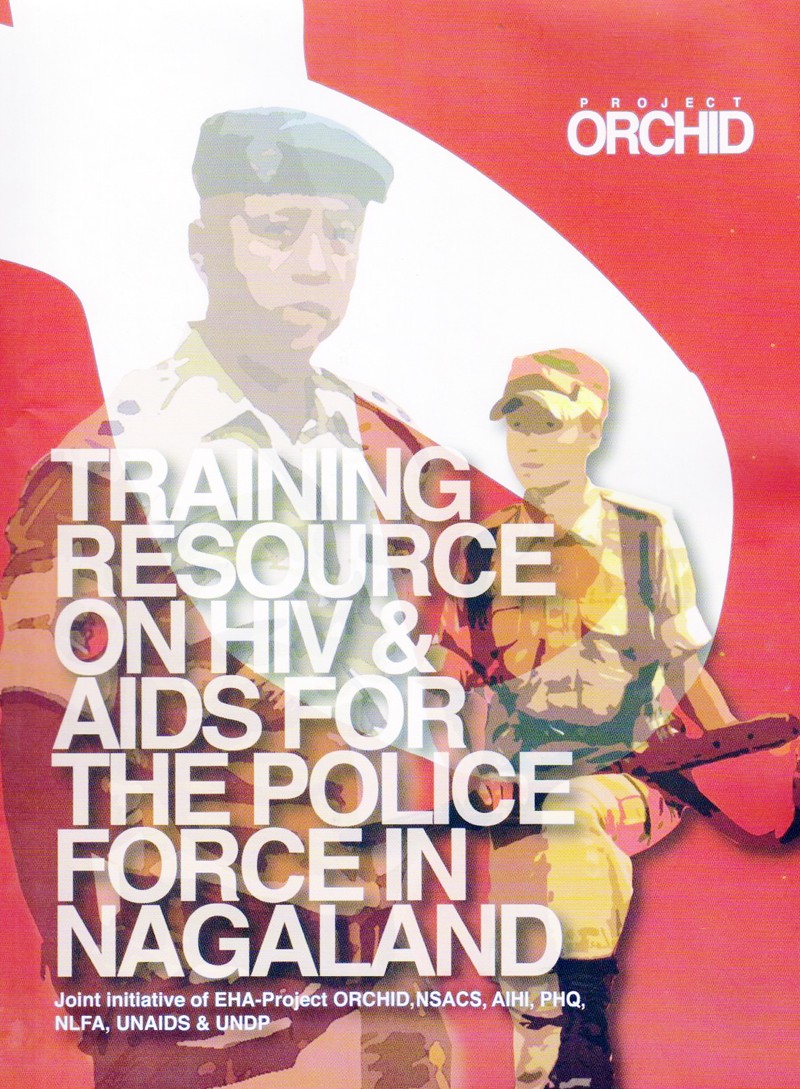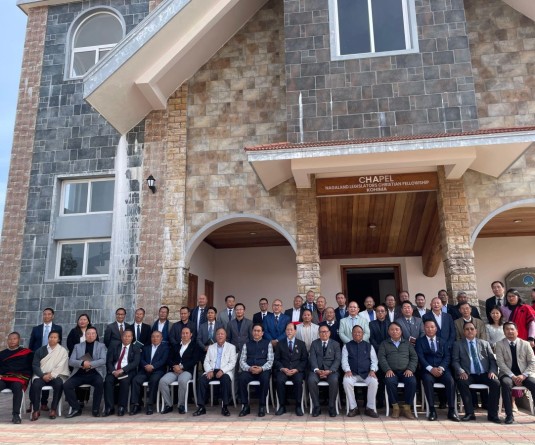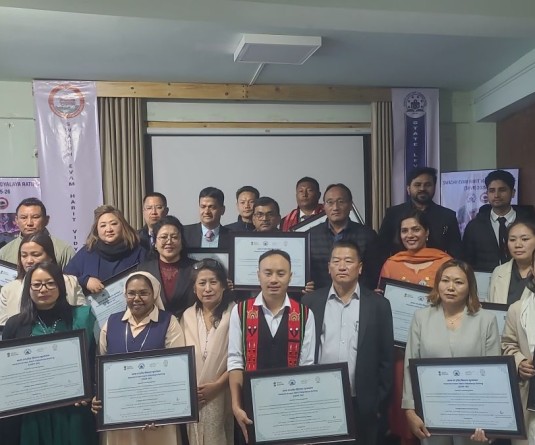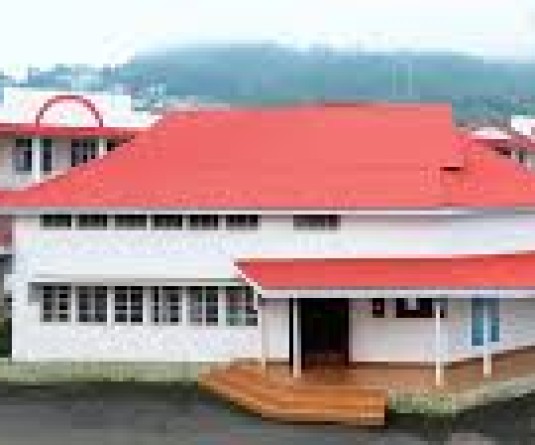Book Cover of the ‘Training Resource on HIV & AIDS for Police Force in Nagaland’.

Changing the knowledge, attitude and practice of the Police at operational level in the light of HIV prevention
Morung Express News
Dimapur | June 9
HIV is a growing concern as it affects everyone directly or indirectly. Every individual is at risk. The only way of preventing the spread of this epidemic is through spreading awareness and knowing about the risk factors.
The elevated risk of HIV infection within the Police Force, many a times, may be attributed to the very nature of work they are engaged in. The nature of Police work subjects them to high pressure in the instances of tackling law and order situation; frequent transfers which requires them to stay away from their home and families for long periods.
Due to these factors, they may seek to relieve stress, loneliness, and boredom through sex, mostly accompanied by the use of alcohol. Easy access to sex workers may lead them to engage in unsafe sex as clients with the sex workers. These factors enhance the risk and vulnerability of Police personnel to HIV infection.
Keeping these factors in view, ‘Training Resource on HIV & AIDS for Police Force in Nagaland’ was released in Dimapur on June 8. It is a training manual by joint initiative of EHA-Project Orchid, NSACS, AIHI, PHQ, NLFA, UNAIDS & UNDP.
Police-related experiences reported by Most At Risk Populations (MARPs) in Nagaland in relation to HIV risk behaviours and violence showed giving gifts to Police to avoid trouble, having Police take condoms away, experiencing a work place raid and being arrested, being associated with sexually transmitted infections and symptoms, inconsistent condom use. Acceptance of more money for sex without a condom and experience of client violence and even having sex with Police to avoid trouble are also experienced by MARPs. These suggest a need for sustained sensitization and advocacy targeting Police-MARPs interactions to reduce HIV vulnerability among MARPs.
This Module for the Police Force in Nagaland is designed to sensitize, train and build the capacity of the Police Force towards a greater and more meaningful engagement in HIV & AIDS responses. It aimed primarily at the Operational Police - those who undertake day-to-day Police duties in the field and who are engaging with the MARP daily. The module offers a mix of key resources for training, which can be used varyingly depending on the duration of the training. The training sessions are supplemented with Power Point Presentations for facilitators.
However, it is not advisable to deviate from the central theme of the sessions, the facilitators, by understanding the needs of the participants, can conceptualize and change the session flow according to the local needs. This is important as the module focuses on issues faced by the MARPs.
The training sessions aimed at changing the knowledge, attitude and practice of the Police at operational level in the light of HIV prevention. It covers the basic information and understanding about HIV/AIDS, Government strategies for HIV Prevention and how some of the legal Acts affect the MARPs and HIV/AIDS prevention efforts. It also talks on importance of safer sex and condom use and the role of Police to help manage the challenge in prevention and care of HIV. Under-standing the challenges of Police force in their line of duty, a session on ‘Stress’ and ‘Anger’ management has been added. The module concludes with discussion and clarification.
Each session has a clear set of instructions on how it is to be carried out. It is recommended that the facilitator read the module completely. It is advisable for the facilitator to have additional reading from other sources on their assigned session before they actually conduct the session keeping in mind the overall objective of the training module.
The module is designed on the principle of adult learning for maximum participants of thirty (30) in one session. However, if the participants are more than 30 then the mode of facilitation (sitting arrangement, icebreakers, games, group works, role-play etc.) may be chosen according or appropriately.
To the extent possible, it is advisable to engage NGO and community representatives as additional resources while delivering the training. It is advisable to invite a senior police person to lead the discussion on the role of police.
The training module is not entirely an original development. It is adapted extensively from existing training manuals and documents to avoid duplication of efforts. This module has been developed to meet the local needs in Nagaland by Ginlalsiam Buhril, Temjen Jamir and Sumit Kumar Basu from EHA-Project ORCHID.






